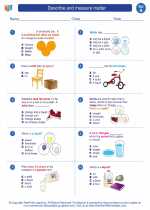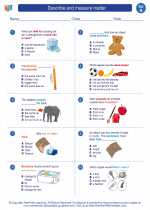Vitamins
Vitamins are essential organic compounds that are required in small amounts for normal growth, metabolism, and overall health. They are classified into two groups: water-soluble vitamins and fat-soluble vitamins.
Water-Soluble Vitamins
Water-soluble vitamins include vitamin C and the B vitamins (such as B1, B2, B3, B5, B6, B7, B9, and B12). These vitamins are not stored in the body and need to be consumed regularly through the diet. They are involved in various bodily functions, including energy production, immune function, and red blood cell formation.
Fat-Soluble Vitamins
Fat-soluble vitamins include vitamins A, D, E, and K. These vitamins can be stored in the body's fatty tissues and liver. They are important for vision, bone health, immune function, and blood clotting.
Sources of Vitamins
Vitamins can be obtained from a variety of foods, including fruits, vegetables, dairy products, lean meats, and fortified cereals. It is important to have a well-balanced diet to ensure an adequate intake of vitamins.
Vitamin Deficiency and Toxicity
A deficiency of vitamins can lead to various health problems, such as scurvy (caused by vitamin C deficiency) and rickets (caused by vitamin D deficiency). On the other hand, excessive intake of certain vitamins can lead to toxicity and adverse effects on health.
Study Tips for Vitamins
- Learn the different types of vitamins and their functions.
- Understand the sources of vitamins and their importance in maintaining overall health.
- Be aware of the symptoms of vitamin deficiencies and toxicities.
- Practice identifying vitamin-rich foods and incorporating them into your diet.
- Review and memorize the recommended dietary allowances (RDA) for vitamins.
◂Science Worksheets and Study Guides First Grade. Describe and measure matter

 Worksheet/Answer key
Worksheet/Answer key
 Worksheet/Answer key
Worksheet/Answer key
 Worksheet/Answer key
Worksheet/Answer key
 Vocabulary/Answer key
Vocabulary/Answer key
 Vocabulary/Answer key
Vocabulary/Answer key
